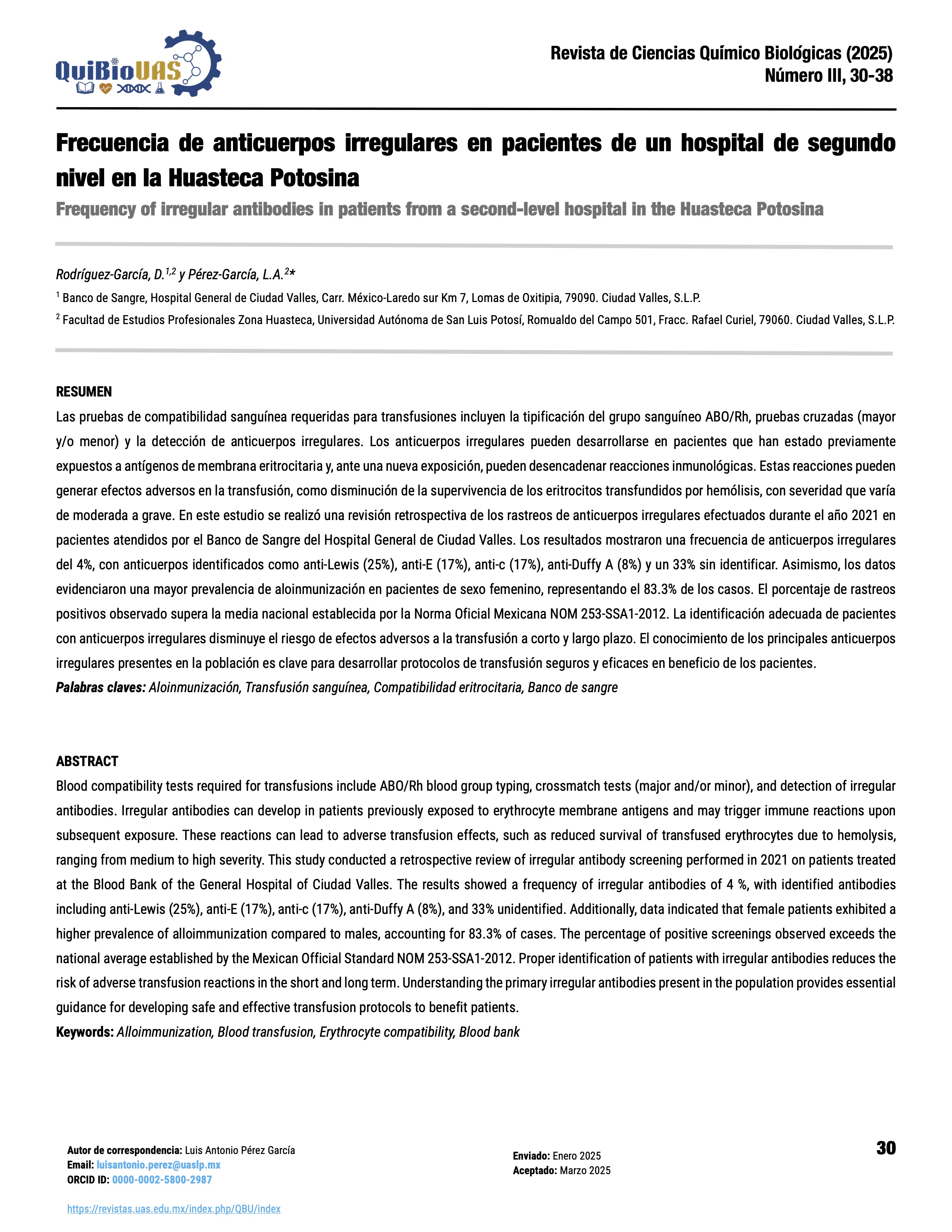Frequency of irregular antibodies in patients from a second-level hospital in the Huasteca Potosinaal in the Huasteca Potosina
Keywords:
Aloinmunización, Banco de sangre, Compatibilidad eritrocitaria, transfusión sanguíneaAbstract
Blood compatibility tests required for transfusions include ABO/Rh blood group typing, crossmatch tests (major and/or minor), and detection of irregular antibodies. Irregular antibodies can develop in patients previously exposed to erythrocyte membrane antigens and may trigger immune reactions upon subsequent exposure. These reactions can lead to adverse transfusion effects, such as reduced survival of transfused erythrocytes due to hemolysis, ranging from moderate to severe severity. This study conducted a retrospective review of irregular antibody screening performed in 2021 on patients treated at the Blood Bank of the General Hospital of Ciudad Valles. The results showed a frequency of irregular antibodies of 4 %, with identified antibodies including anti-Lewis (25%), anti-E (17%), anti-c (17%), anti-Duffy A (8%), and 33% unidentified. Additionally, data indicated that female patients exhibited a higher prevalence of alloimmunization compared to males, accounting for 83.3% of cases. The percentage of positive screenings observed exceeds the national average established by the Mexican Official Standard NOM 253-SSA1-2012. Proper identification of patients with irregular antibodies reduces the risk of adverse transfusion reactions in the short and long term. Understanding the primary irregular antibodies present in the population provides essential guidance for developing safe and effective transfusion protocols to benefit patients.
Downloads

Downloads
Published
Data Availability Statement
They have not been previously published.
Issue
Section
Categories
License
Copyright (c) 2025 QUIBIOUAS, Journal of Biological Chemical Sciences

This work is licensed under a Creative Commons Attribution-NoDerivatives 4.0 International License.


